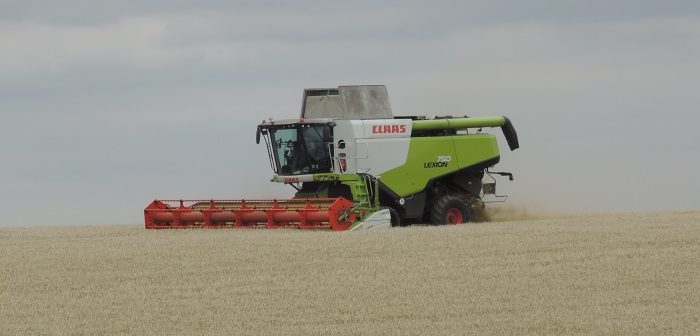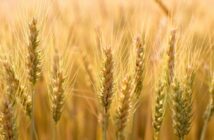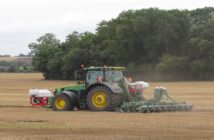Total Australian winter crop production is forecast to increase by 32 per cent in 2016–17 to a new record high of 52.4 million tonnes, according to the Australian Crop Report, published by the Australian Bureau of Agricultural and Resource Economics and Sciences
Acting ABARES Executive Director, Peter Gooday, said above average rainfall in September, followed by mild spring conditions, had ensured good soil moisture for the critical grain development period.
“Wheat production in 2016–17 is forecast to rise by 35 per cent to a record high of 32.6 million tonnes,” Mr Gooday said.
“At the same time, barley production is forecast to rise by 24 per cent to a record high of 10.6 million tonnes, and canola production is forecast to rise by 22 per cent to 3.6 million tonnes—which would be the third-highest on record.
“Chickpea production is also forecast to reach a record high of 1.2 million tonnes this year—a rise of 21 per cent that reflects an estimated increase in planted area and a forecast rise in the average yield.”
Mr Gooday said that some cropping regions had been hard hit by seasonal conditions this year.
“Across the nation, however, total production is forecast to be higher in every state,” Mr Gooday said.
Mr Gooday also said that total summer crop production was forecast to increase by 21 per cent to around 4.6 million tonnes in 2016–17, with the total area planted forecast to increase by 15 per cent to around 1.4 million hectares.
“Among leading summer crops, cotton production is forecast to increase by 64 per cent in 2016–17 to around 1.0 million tonnes of cotton lint and around 1.5 million tonnes of cottonseed.
“The area planted to rice is forecast to increase almost fourfold in 2016–17 to 90 000 hectares in response to an increase in the supply of irrigation water available to rice growers.
“However the area planted to grain sorghum is forecast to fall by 31 per cent in 2016–17 to 471 000 hectares, the lowest in 24 years.”
The winter crop forecast released today represents a 14 per cent upward revision from the forecast ABARES published in the September 2016 edition of Australian crop report.




